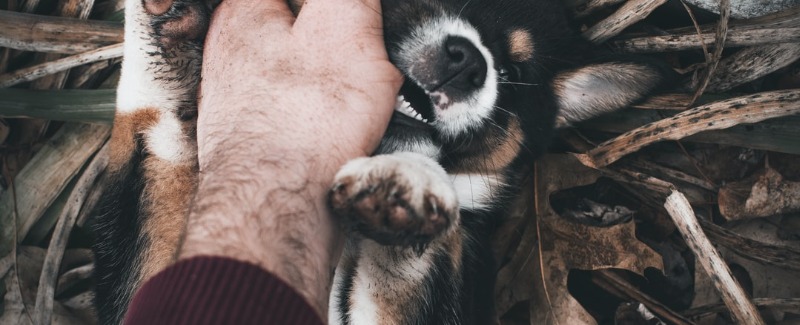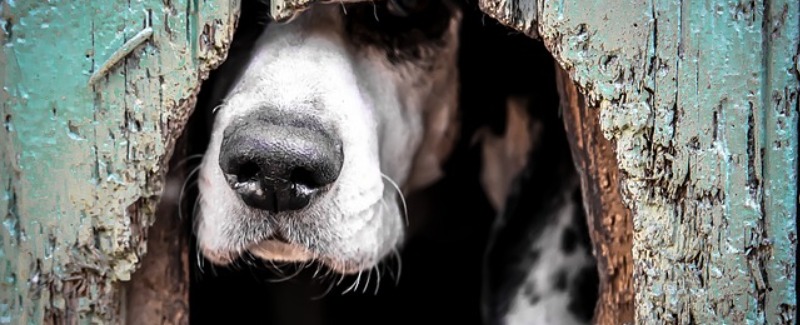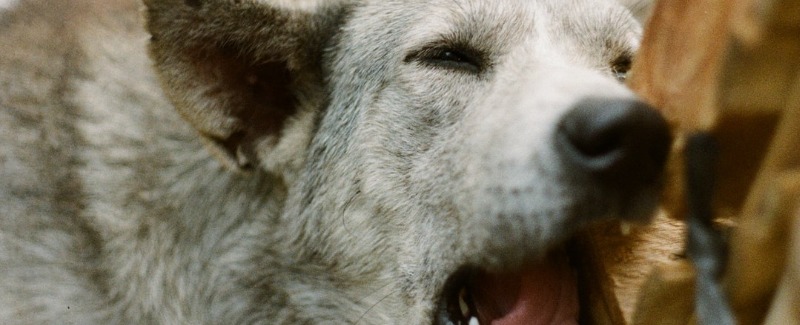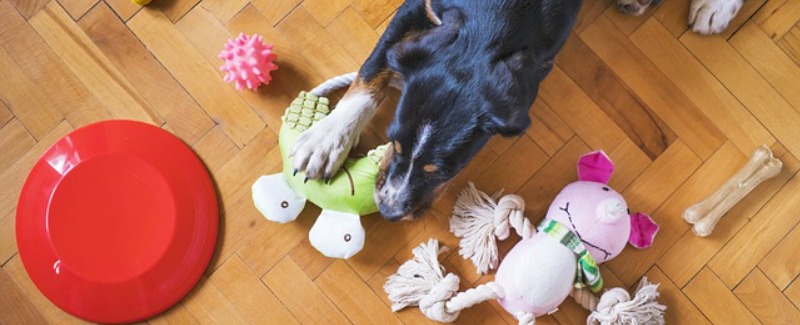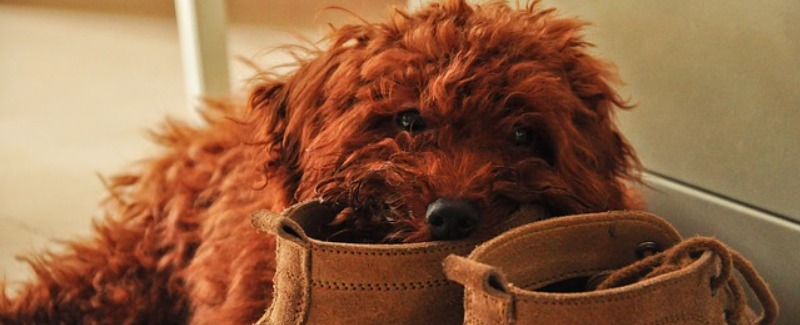Dogs’ interactions with each other often involve their teeth. They use their teeth to play, to threaten or discipline, to control, and to some extent to communicate. Just because using their teeth is natural for them doesn’t mean we have to accept them biting or nipping us. Whether their intent is play, communication, or discipline, teeth on people just isn’t acceptable.
Take the Bite Out of Playing
Dogs’ play with each other is mostly modified fighting and hunting behavior, with a lot of chasing, wrestling, and biting included. While this behavior is perfectly acceptable between dogs, it’s certainly not acceptable for your dog to play with people as if they are his canine buddies or his littermates.
Play with your dog in ways that encourage cooperation, like teaching her to fetch a toy. Getting on the floor and wrestling or playing roughly will encourage her to treat you like a dog. Grabbing her muzzle, blowing in her face, or shaking your finger in her face also promote mouthiness.
If she does have a momentary lapse of reason and puts her teeth on you in play, don’t wait for her to get several test bites in to discover how much pressure is too much. Any sensation of teeth on skin is too much and grounds for ending the play session immediately, at least for a few minutes. Most dogs will become very careful with their teeth quickly, realizing that the fun stops whenever teeth come out.
Puppies learn bite inhibition from the ages of three to 12 weeks. Puppies that were orphaned, the only puppy in the litter (a singleton), removed from their litters before seven weeks, or unsocialized with other dogs until 12 weeks may never learn to moderate the pressure of their bites. When they bite, they bite hard.
Puppies learn bite inhibition, which means moderating the amount of pressure they apply with their teeth, from their mothers, littermates, and other dogs they play with. Dogs that apply too much pressure when they bite are disciplined by the victim with a sharp yelp, sometimes a snapping, yapping telling off, and usually the victim ends the fun by either turning away and refusing to play or actually driving the perpetrator away from the area.
Teeth Don’t Work
If you’ve ever seen an episode of the old “Lassie” TV series, you’ve probably seen Lassie oh-so-gently take someone’s hand in her mouth to lead them to safety, or to Timmy in whatever his crisis of the week was. While this looks really sweet on TV, in real life this kind of “communication” is all wrong between dogs and people.
As far as puppy mouthing and play-biting are concerned, you should consider your shoes, clothes, and hair (or hair accessories) to be part of your body. If you’re wearing it, or it’s attached to you in some way, it is you, and the zero-tolerance policy applies.
If you do allow your dog to communicate this way, he might think if you don’t respond to his first request, that he’s supposed to increase the pressure of his teeth. If your dog needs to tell you something, even that Timmy is stuck in the well, there are much safer and more reasonable ways for him to do it. Sitting and giving you eye contact is always a reasonable and polite way to ask permission. Even barking, within reason, is a more logical choice for what form of communication that you allow your dog to use for particular needs, like to go out.
Some puppies and dogs will use their teeth to get their own way, or to intimidate someone into stopping what they’re doing. For most puppies, this starts as a threat only, with no application of teeth. If it works for the puppy, he’ll try it again the next time something happens he doesn’t like, and so on, until it becomes his first response to anything he’s even slightly displeased about. If it’s been working for him for a while, and then suddenly doesn’t work, he might escalate the threat to an actual bite to get his point across.
Dogs make very few mistakes with their teeth. They know exactly where their teeth are, and how much pressure they apply. For this reason, dogs almost never try to bite someone. They either threaten or they bite. Similarly, dogs, don’t accidentally bite. Whether it’s to protect themselves or some valued resource, or because they think they have the right to because of relationship issues, if they bite, they mean to.
Right from the moment you bring your puppy home, be very careful that you never let him “win” or get his way by threatening or biting. If he has a temper tantrum and flies into a piranha-like biting frenzy, grab him by as much of his scruff as you can hold, and hang on until he’s over himself. If you can, keep his front feet elevated slightly off the ground while you’re hanging on. Only release him when he’s calm. If your dog already has a history of winning by biting, consult a professional trainer or behaviorist to help you get your relationship in order.

